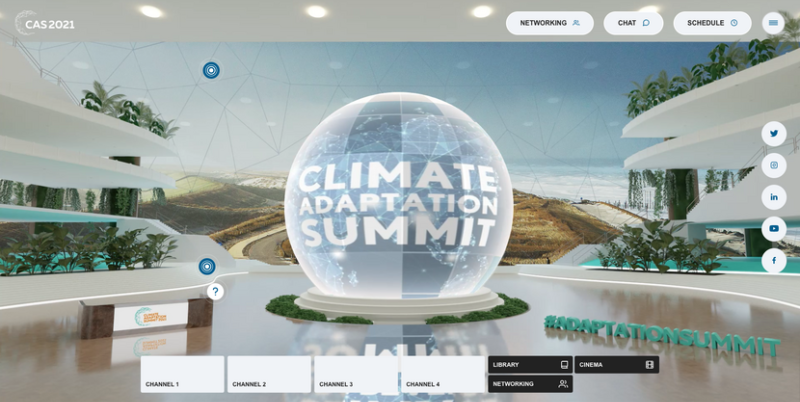Today, governments, business leaders, and international organisations from across the world will unite at an online global conference to accelerate climate adaptation.
The Climate Adaptation Summit, convened by the Global Commission on Adaptation (GCA), aims to build momentum for the UN’s climate conference, COP26, in Glasgow later this year.
It’s also a chance for the GCA to showcase the work of its 8 Action Tracks and its 12-month framework for climate adaptation undertaken by the Commission and its 50 partners in 2019 and 2020.
Of the 8 Action Tracks, the Locally Led Action Track calls for “significant increases in the volume of devolved and decentralised funding available to local governments, community-based organisations, and others working at the local level to identify, prioritise, implement, and monitor climate adaptation solutions.”
We spoke to some of the organisations active in the Locally Led Action Track about the importance of grassroots engagement for climate adaptation.
What is the Locally Led Action Track all about?
Tracy Mann, regional co-coordinator of Women’s Climate Centers International (WCCI): “The Locally Led Action track focuses on specific recommendations to governments, funders, NGOs, business and other key actors to effectively redesign policy and financial support to achieve long-term, sustainable, bottom-up climate adaptation strategies.
“Our team conducted community dialogues in villages in Uganda and Kenya impacted by climate change to provide their input into the Locally Led Adaptation Principles developed under the leadership of WRI.
“The building of a physical women-owned climate centre, for example, is extremely important for us in supporting women’s leadership on climate change adaptation, which is historically a top-down initiative. Things get decided on behalf of the community without community input, local knowledge and buy-in. One of the most profound things we are doing is investing in local leadership and making decisions for the design of the centre collaboratively with the community.”
Why is climate adaptation important?
Marek Soanes, researcher on climate finance and climate risk management at the International Institute for Environment and Development (IIED): “To date, adaptation, development and humanitarian support to the most vulnerable countries and communities has fallen well short of what is needed. And funding for it rarely reaches the local level where it is most needed; and when it does, the quality of the funding is often poor, meaning it is too short term, too inflexible to address changing local needs, and often comes with lots of strings attached.
“The next ten years are crucial to prepare, adapt and transform societies, economies and ecosystems and climate adaptation is central to being able to do this.”
Saleemul Huq, director of the International Centre for Climate Change and Development (ICCCAD): “Our organisation is located in Bangladesh which is one of the most vulnerable developing countries to the adverse impacts of climate change. I have also been working in other vulnerable developing countries on adaptation to climate change so that is what we have focused our work and built our expertise on over the years.”
Mann: “Climate adaptation is essential to community survival. It is the definitive cross-cutting issue that local women’s leadership must address to ensure thriving livelihoods, health and communities.”
What are you most excited for about the Summit?
Soanes: “The Climate Adaptation Summit provides a major political moment to ensure 2021 helps mark a change in the way adaptation is supported, with much greater emphasis on the ideas and solutions of local institutions, people and their communities at the frontline of climate impacts. It can help create the positive momentum needed for a successful COP26 in Glasgow at the end of 2021.”
Huq: “I am excited that the summit will not only highlight the need for greater emphasis on adaptation around the world but also the need to focus global efforts to support the most vulnerable communities in the most vulnerable countries. It is also likely to develop a ten-year workplan that can be tracked every year.”
Mann: “WCCI is most excited to have the voices of local people heard in the global discussions around Locally-Led Adaptation. To my knowledge, our report is the only one submitted to WRI that includes the verbatim commentary from villagers in community. We are proud to bring these voices to the table and, hopefully, enhance their stature as the key stakeholders in this process.”
Visit the summit here.
This post was sponsored by the Climate Justice Resilience Fund. See our editorial guidelines for what this means.
